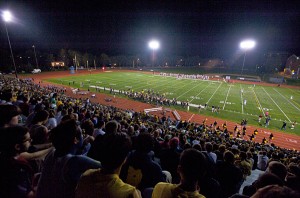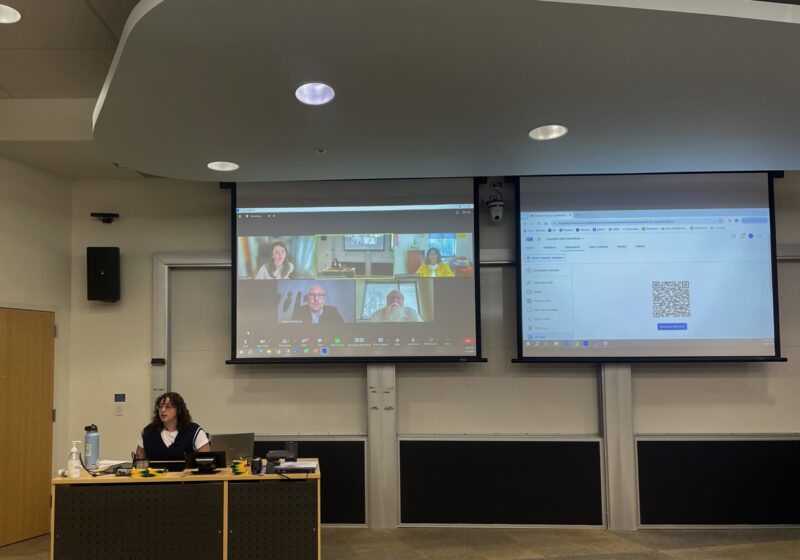As a result of working for the Campus Times for three and a half years, you end up attending a wide variety of student events, athletic contests and performances that would otherwise have been completely off your radar. Through the course of covering all these functions — diverse as they are — you start to notice some commonalities threaded among them. For me, one such theme has been by far the most prevalent: Although the quality of our students’ work is outstanding, attendance at these events often leaves a lot to be desired.
The topic of poor event attendance likely conjures an image of a small scattering of football supporters on a dreary afternoon in Fauver Stadium (OK, it does for me at least). While sporting events may be the quintessential example, student concerts, recitals and other performances all suffer from less than ideal support from other students as well.
Is this an issue of student apathy? Considering the passion with which we approach our own teams and groups, referring to the student body as apathetic seems like a wholly unjust characterization. This passion, however, might actually be central to the attendance problem. Perhaps students are so concerned with their academics and so engrossed in their own activities that they simply don’t have the time to attend other students’ performances.
Or perhaps they just need better motivation to do so.
Students at UR undeniably keep busy, but we also respond to opportunities to boost our all-important GPA. Professors could harness this fact to do a great service to student life at UR by finding more ways to integrate student event attendance into course grading. While this would initially introduce a wrinkle into the grading systems of some professors, the potential benefits far outweigh the work it would take to overcome this on the front end.
For some courses, reviewing performances makes sense as an integral component of students’ grades — many classes in the Music Department could fit into this category. With some effort and some out-the-box thinking, however, just about any course dealing with the arts could incorporate reviewing student performances into the grading system, at least for some sort of extra credit; students in dance classes could review dance performances, students in a poetry class could attend and review a student reading, etc.
Some professors already offer extra credit for attending student performances, but if it were to become a more common part of grading systems, poorly attended student performances could start seeing some real improvement.
It’s conceivable that some performance-based organizations might think of the use of extra credit as an “artificial” boost to event attendance. Understandably, such groups might not be in favor of this if they believe it would lead to a larger but less engaged audience. From the perspective of a performer in the UR Percussion Ensemble (which suffers from perennially poor concert attendance), however, I can say that my main priority is simply getting people to come out to Strong Auditorium for our concerts. After a long semester of practice, a good turnout serves as validation of the work we’ve put in, and I for one am not about to go out into the audience after the show and start questioning why people decided to come.
Additionally, just because the impetus for a student to attend an event is extra credit doesn’t mean that he or she won’t be an attentive, respectful audience member who gets something out of the performance. In fact, if students have to write a review of a performance afterwards, they’re likely to be at least as engaged — if not even more so — than other audience members.
Of course, in the ideal scenario students wouldn’t need to be incentivized to attend each others’ performances at all. However, on a campus where everyone is so deeply involved in their own activities, a nudge in the right direction could help many students feel that their efforts throughout the semester are being appreciated by a wider audience of their peers.
Fleming is a member of the class of 2013.
Conspiracy Theories
Spies with occult ties? Russian professor stirs controversy amongst colleagues
Visiting Assistant Professor Dmitry Bykov made controversial claims concerning purported occultism amongst Russian secret service members during his April 2…
Alcohol and Other Drug Education Program
Panel clears the air on cannabis topics
So, what’s going on with weed? The Alcohol and Other Drug Education Program (AOD) hosted a cannabis Q&A panel on…
Features
The better CDCS: Melcourses
Melcourses allows students to search and schedule courses, organize selected sections, and identify time conflicts in preparation for the next semester.






